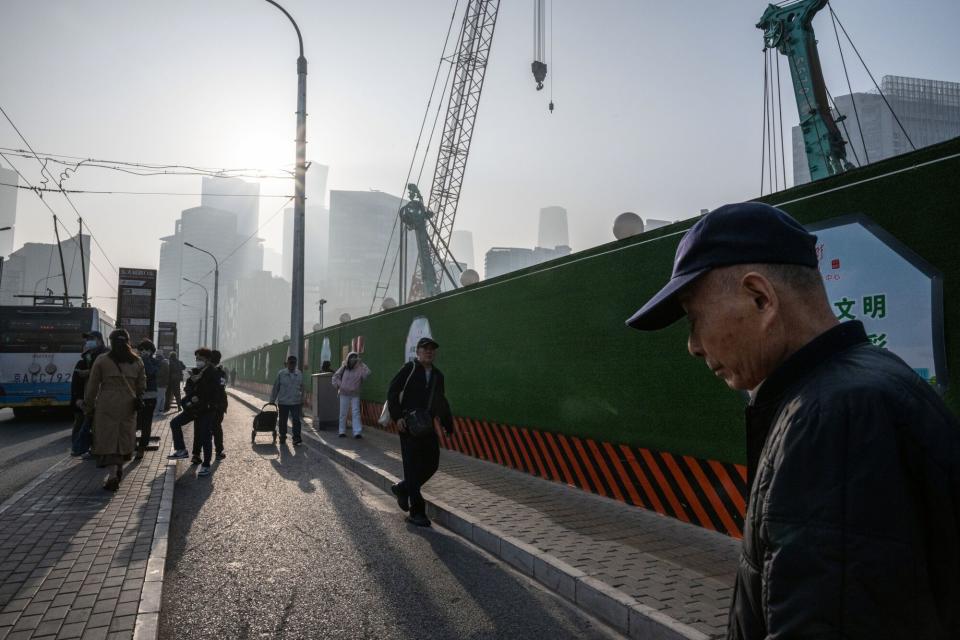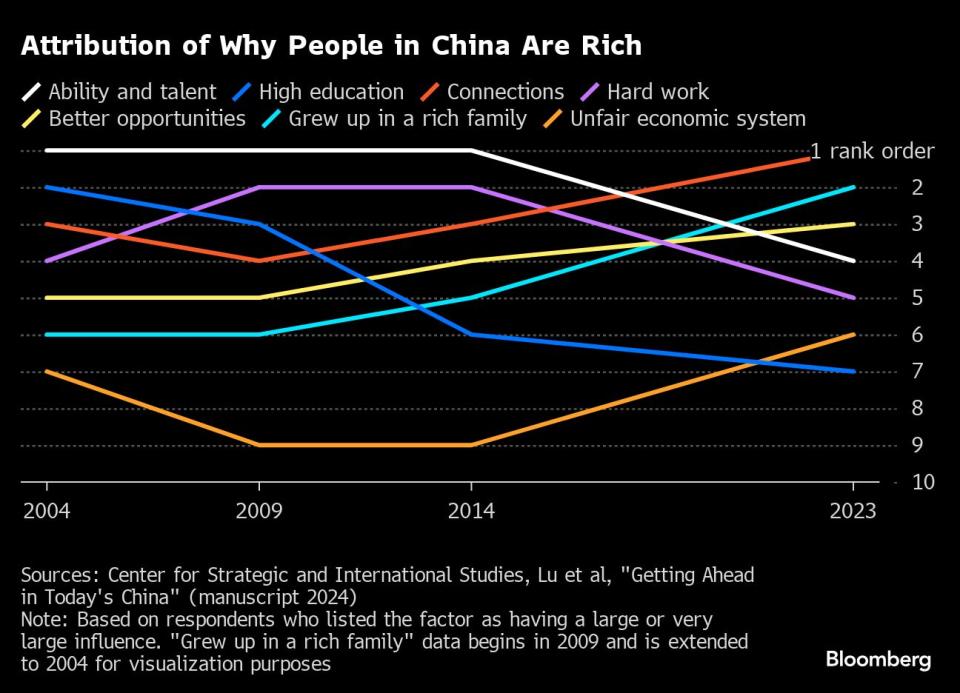Chinese Lose Confidence in Meritocracy as Path to Greater Wealth
(Bloomberg) -- Chinese people are blaming inequality in the economic system for diminishing their chances at amassing wealth, as urgency builds for Beijing to revive confidence at a key policy meeting.
Most Read from Bloomberg
Saudis Warned G-7 Over Russia Seizures With Debt Sale Threat
Stock Rotation Hits Megacaps on Bets Fed Will Cut: Markets Wrap
Tesla Delays Robotaxi Event in Blow to Musk’s Autonomy Drive
Saudi Prince’s Trillion-Dollar Makeover Faces Funding Cutbacks
Connections and growing up in a rich family were now seen as the top predictors of wealth in a survey of thousands of Chinese citizens published Tuesday by the Center for Strategic and International Studies. That’s a dramatic shift from the decade prior to 2015 when ability and talent was the most popular response.
Unequal opportunity replaced lack of ability in the survey as the primary reason why people in China were poor. That marked the first time it had topped responses in the two decades researchers have conducted the nationwide polls, the Washington-based think tank said in its report.
“These trends suggest less confidence in meritocracy and the economy to deliver for all citizens equitably,” CSIS fellows Ilaria Mazzocco and Scott Kennedy wrote, warning of the dangers in that scenario. “A public that is more uncertain of its future is less likely to engage in consumption or invest in new business.”
Those who agreed with the statement “In our country, effort is always rewarded,” dropped from 62% in 2004 to 28% in 2023, according to the findings based on a collaboration with research led by Harvard University’s Martin Whyte and Stanford University’s Scott Rozelle.
President Xi Jinping has sought to tackle inequality since becoming leader of the ruling Communist Party in 2012, initiating sweeping crackdowns on corruption and a “common prosperity” drive to close the wealth gap. Despite that push, the earning gap has little changed and Chinese incomes are growing at their slowest pace since the late 1980s.
The report comes as the top leader is set to convene the third plenum in Beijing, where policymakers are expected to unveil their long-term vision for how to boost growth in the world’s No. 2 economy. Analysts including Neil Thomas and Jing Qian at the Asia Society Policy Institute expect policies promoting social welfare among those to be announced at that conclave.
Such policies reflect the leadership’s awareness of growing concerns over inequality, according to the report. Major political instability is still unlikely given the country’s economic slowdown is, at least in part, down to cyclical factors and there is a “wide range of economic trajectories” it could take, Whyte and his colleagues were cited as saying.
Last year’s survey was conducted in the second, third, and fourth quarters with sample sizes of 12,059, 13,022 and 7,544, respectively. The questions were presented through popular financial app Alipay, which the report said allowed scholars to reach a “very broad and diverse audience.”
Most Read from Bloomberg Businessweek
Ukraine Is Fighting Russia With Toy Drones and Duct-Taped Bombs
At SpaceX, Elon Musk’s Own Brand of Cancel Culture Is Thriving
©2024 Bloomberg L.P.




